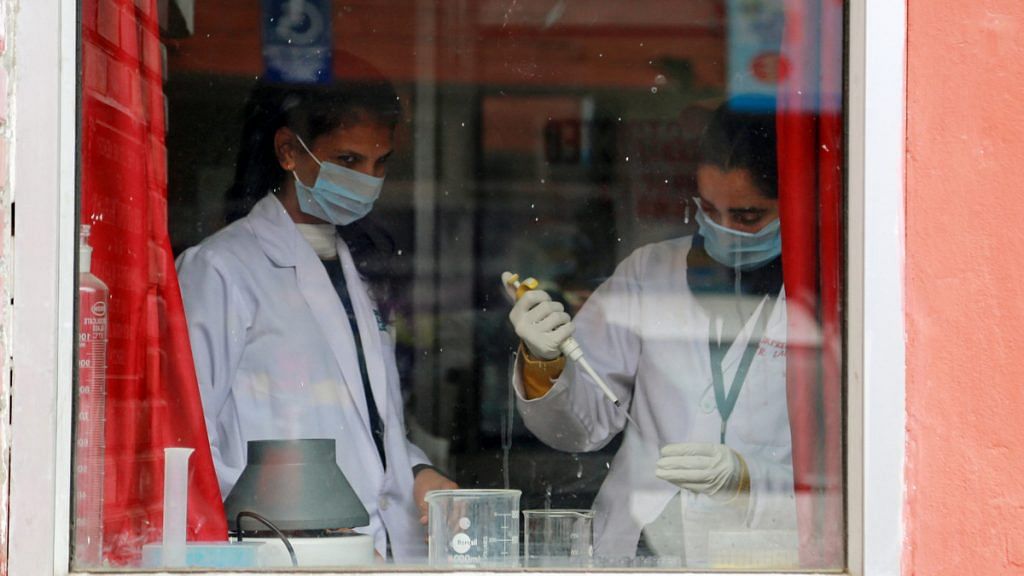New Delhi: The Indian Council of Medical Research (ICMR) on Wednesday announced that it would fast-track the roll-out of the Solidarity trial launched by the World Health Organization (WHO) “to help in finding an effective treatment for COVID-19”.
Launched on 18 March, the Solidarity trial is an international clinical trial to compare four untested treatment options against standard of care to assess their effectiveness. These treatment options include remdesivir, lopinavir/ritonavir, lopinavir/ritonavir with interferon beta-1a and chloroquine or hydroxychloroquine.
The ICMR’s press release quoted its director-general Balram Bhargava as saying that the council is “working relentlessly to implement scientific interventions to combat the COVID-19 pandemic. The decision to join the WHO solidarity trial is an important step in this endeavor”.
Bhargava further said that the ICMR’s National AIDS Research Institute (NARI) was designated as the national coordination site for the trial in India.
Also read: How Niti Aayog plans to make India a Covid testing superpower with private help
Recruitment of Covid-19 patients begins
According to the press release, nine sites have been approved for the trial that has begun recruiting Covid-19 patients as participants.
“The required regulatory and ethical approvals have already been obtained and clinical trial sites have started to recruit patients in the trial,” senior scientist at NARI and national coordinator for the trial in India, Dr Sheela Godbole, said.
The press release also quoted WHO representative to India, Dr Henk Bekedam, who lauded the Indian government and the ICMR for their decision to join the trial. “India plays a critical role in both research as well as in manufacturing once trials conclude successfully. WHO India is extending the required support to conduct the trial in India,” he said.
Also read: Covid and swine flu: Maharashtra, Gujarat, Delhi and Rajasthan have got the worst of both
How the trials will work
The WHO’s website states that the trial would involve adults above the age of 18 years who have been recently hospitalised, or are already in the hospital with Covid-19. They will either be administered the “local standard of care”, presumably the control group, or the “local standard of care plus one of” the four treatment option being tested.
According to the WHO’s guidelines, neither the patients nor the medical staff is allowed to determine which patients receives what treatment. This will be allocated at random by a computer.
“Critical anonymized information for the trial will only be collected at the randomization stage and when the patient is discharged or dies: which study drugs were given (and for how many days); whether ventilation or intensive care was received (and, if so, when it began), date of discharge, or date and cause of death while still in hospital,” according to details provided by the international body.
Also read: We will likely need several vaccines to combat coronavirus across the world
